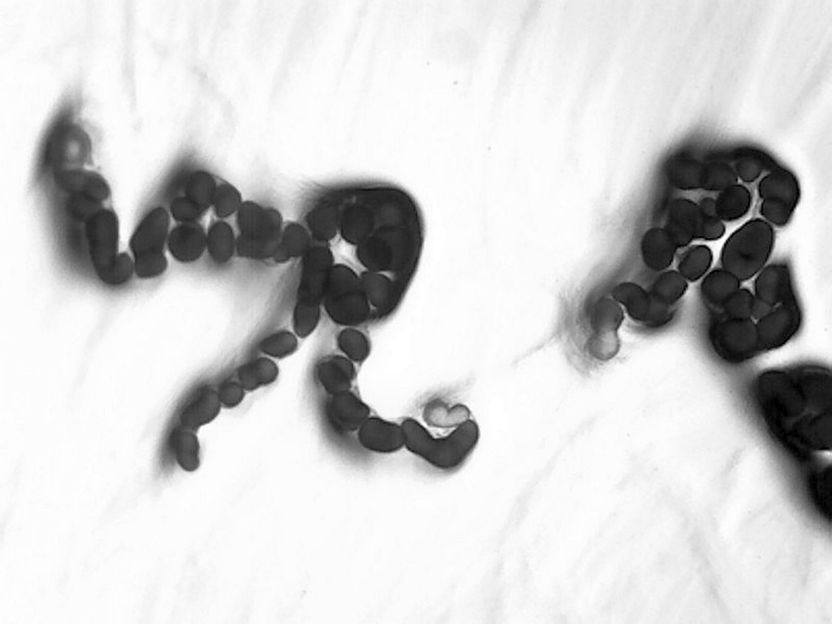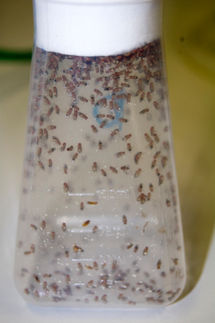From mice to men, evidence of evolutionary selection is found in 544 genes in analysis going back 80 million years
By comparing the genomes of humans and five other mammals, Cornell researchers have identified 544 genes that have been shaped by positive selection over millions of years of evolution.
"To our knowledge this is the largest and most comprehensive analysis of positive selection to date," write the researchers in PLoS Genetics, reporting on research mainly funded by the National Science Foundation. Natural selection that tends to favor new forms of genes is known as positive selection.
Previously, the Cornell group compared the genomes of humans, chimpanzees and the Rhesus macaque. By extending the analysis to mice, rats and dogs, the researchers were able to find "stronger signals" of change by going back up to 80 million years on the evolutionary tree. Other studies have found signatures of positive selection using population genetics methods - comparing genomes across many members of the same species - but those focus on changes over just the last tens of thousands of years.
The researchers - including Adam Siepel, Cornell assistant professor, and Carlos Bustamante, Cornell associate professor, both of biological statistics and computational biology; and Cornell postdoctoral researchers Carolin Kosiol and Tomas Vinar - used a high-performance computer cluster at the Cornell Center for Advanced Computing to study 16,500 human genes that are also found, with some differences, in at least two of the other five species.
Over time, random changes can occur in the genetic code that replace one of the amino acids in a protein with another. Sometimes these changes have no effect on the function of the protein. But if the change alters the function of the protein and the change is beneficial - if, for example, it protects against a disease that is common in a certain time and place - individuals with the new version of the gene will be more likely to survive than others, and the new version will gradually replace the old one in an evolving population.
Siepel's group used the unimportant changes as a sort of clock to show how much change would be expected over evolutionary time. If a gene showed significantly more change than expected by random chance it was predicted to be under positive selection.
Many of the positively selected genes found in rodents involved immunity and defense, including defense against bacteria and viruses, suggesting an evolutionary "arms race" with pathogens. Responses to wounding and inflammation were also common.
The largest group of positively selected genes in primates involved sensory inputs - including perceptions of taste, color and pain. "The conventional wisdom is that we should see major changes in the brain-related genes," Siepel noted. "We didn't find a signal for that, but did find inputs to the central nervous system." Perhaps, the researchers speculated, changes in sensory input drove changes in the brain.
The study supports the idea that positive selection is important in evolution, Siepel said. Theorists have argued over the relative importance of positive selection versus "neutral drift," where random changes simply happen with no positive or negative result. He noted that positive selection was found mainly in genes that are not expressed in as many tissues as others. "Genes with more specialized purposes may have more freedom for adaptation," he explained.
The researchers also found evidence that many changes seem to have occurred in spurts over short periods of time. For example, they found genes that were not under selection in lower mammals, then came under selection in primates, then were lost in humans. Whether evolution has been continuous or episodic has also been a subject of much debate among biologists.
Topics
Organizations
Other news from the department science

Get the life science industry in your inbox
By submitting this form you agree that LUMITOS AG will send you the newsletter(s) selected above by email. Your data will not be passed on to third parties. Your data will be stored and processed in accordance with our data protection regulations. LUMITOS may contact you by email for the purpose of advertising or market and opinion surveys. You can revoke your consent at any time without giving reasons to LUMITOS AG, Ernst-Augustin-Str. 2, 12489 Berlin, Germany or by e-mail at revoke@lumitos.com with effect for the future. In addition, each email contains a link to unsubscribe from the corresponding newsletter.
Most read news
More news from our other portals
Last viewed contents

Searching for more - The hunt for diversification, multimodal approaches and top talent are rapidly reshaping life sciences
Merck Reports Results of Phase III Study of Investigational Oral Allergy Immunotherapy Tablet (AIT)

Unlimited access to microbiological research data - Update of the freely accessible database BacDive enables access to more than 900,000 metadata
Genedata Begins High-Throughput Screening Collaboration with NIH Chemical Genomics Center




















































